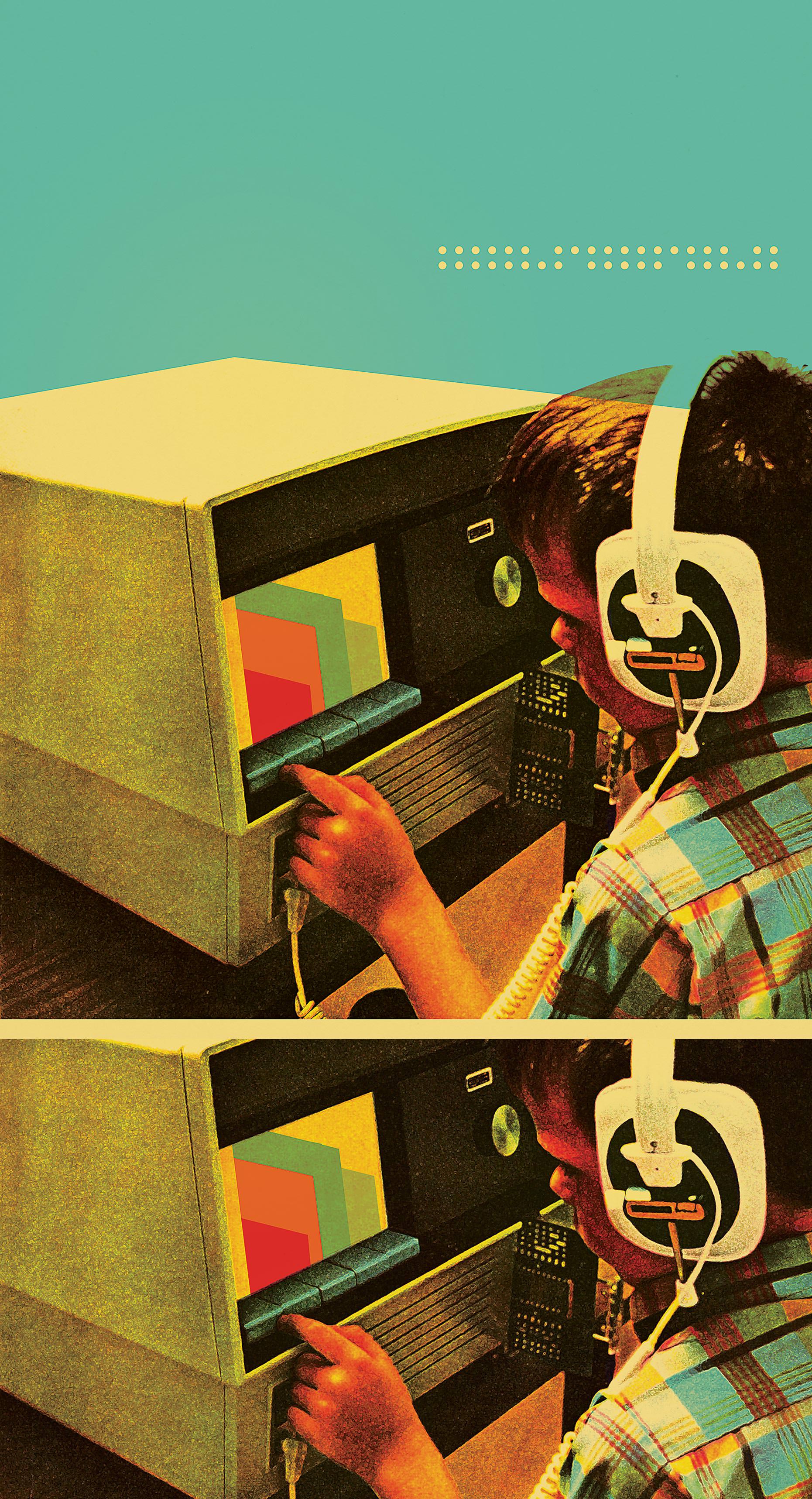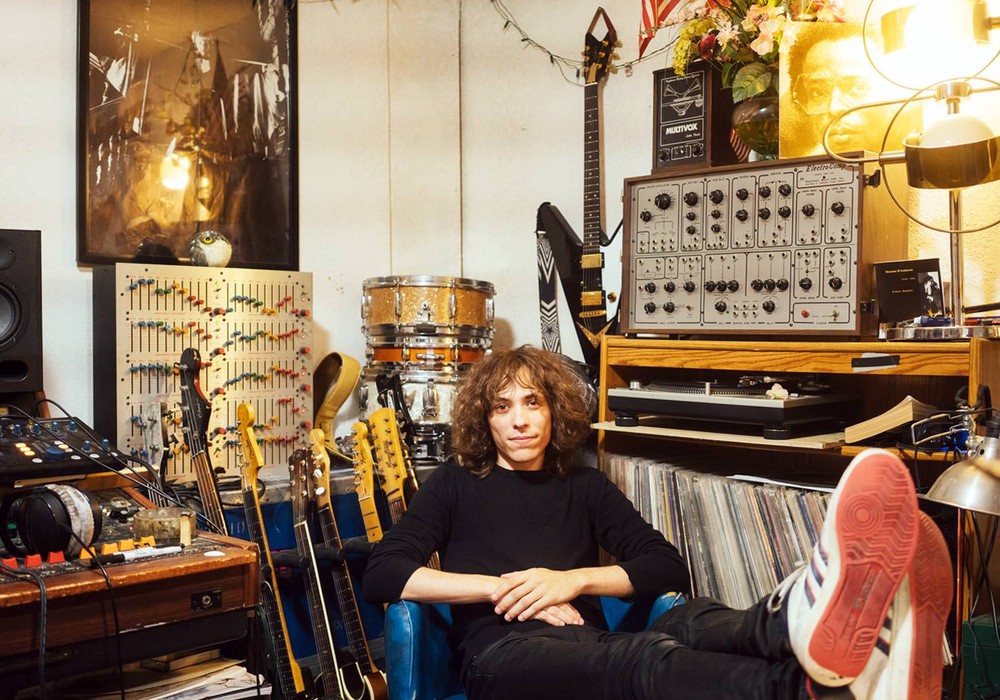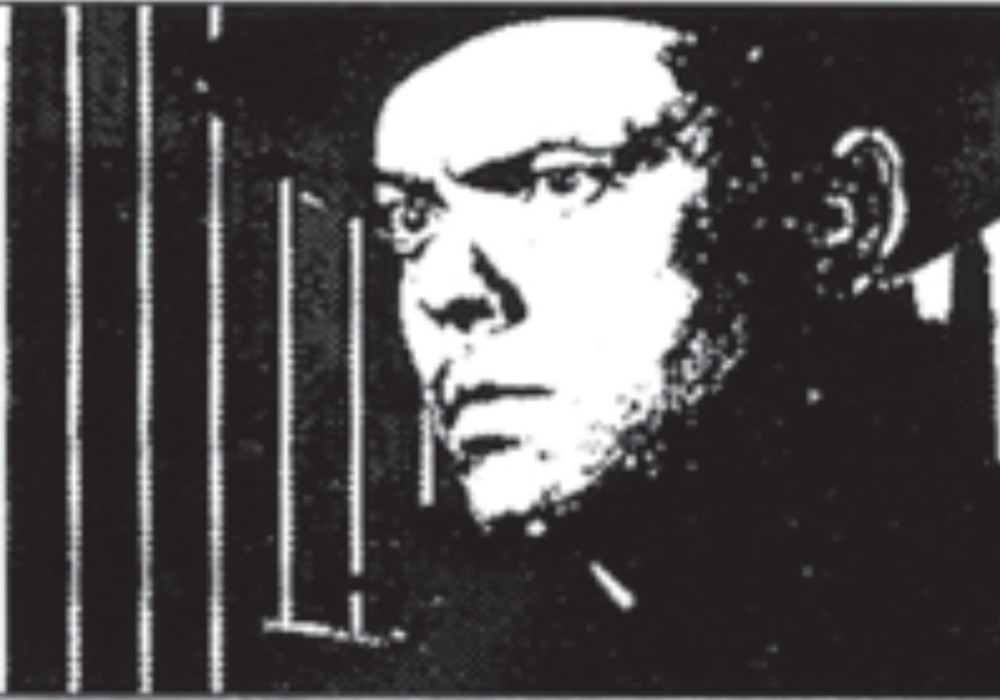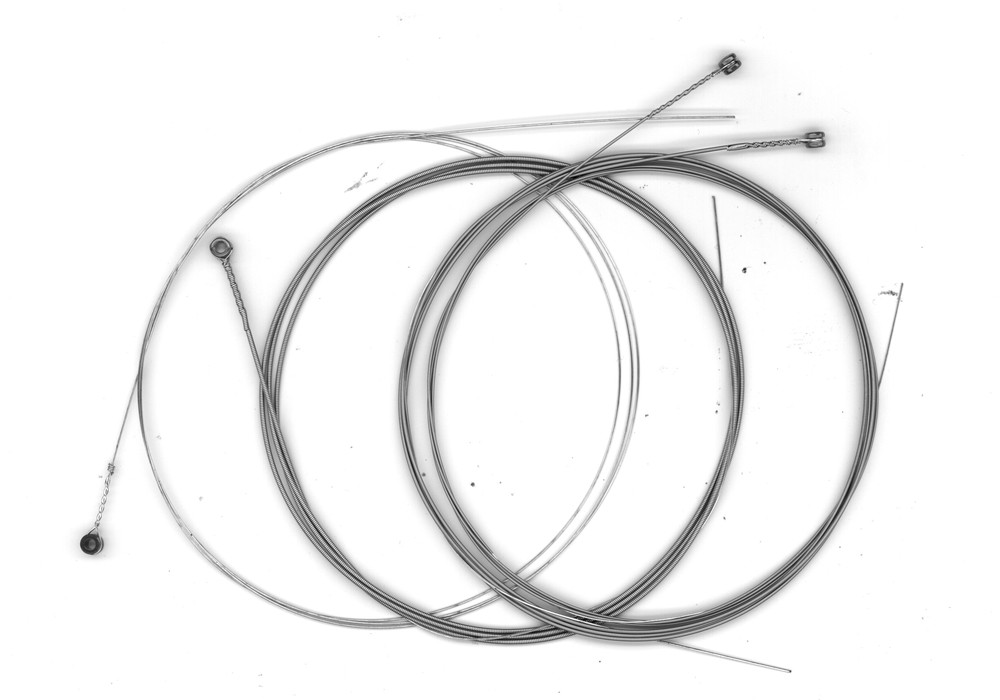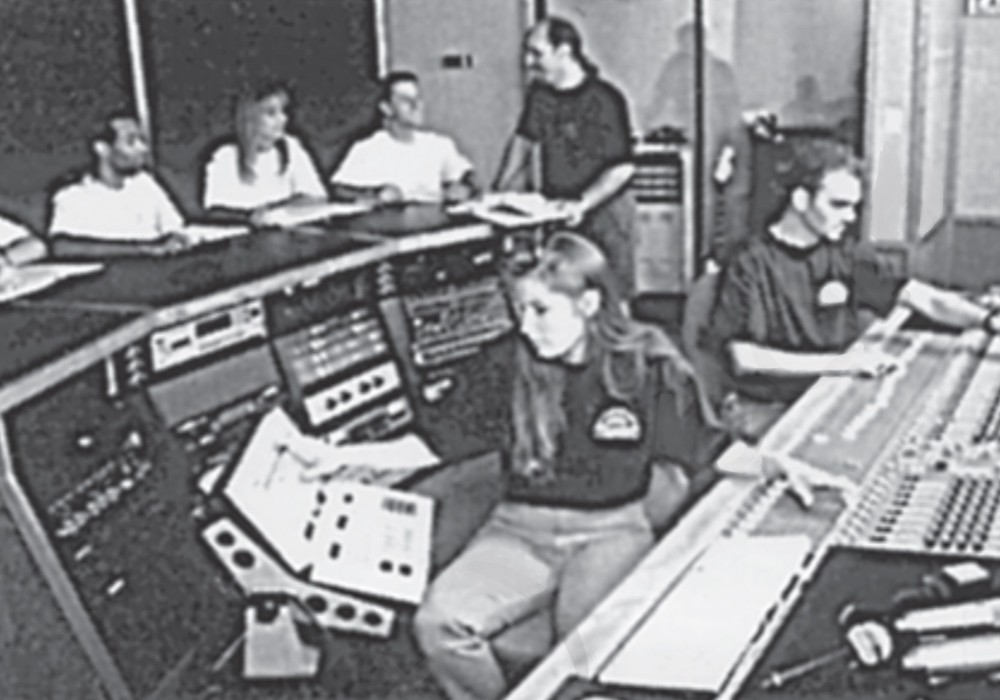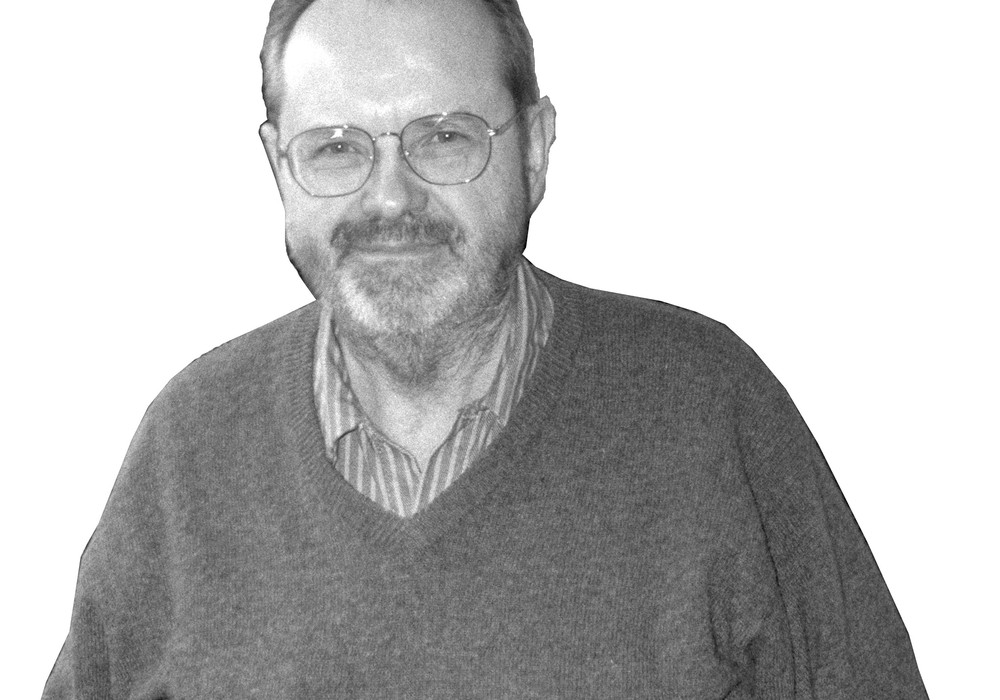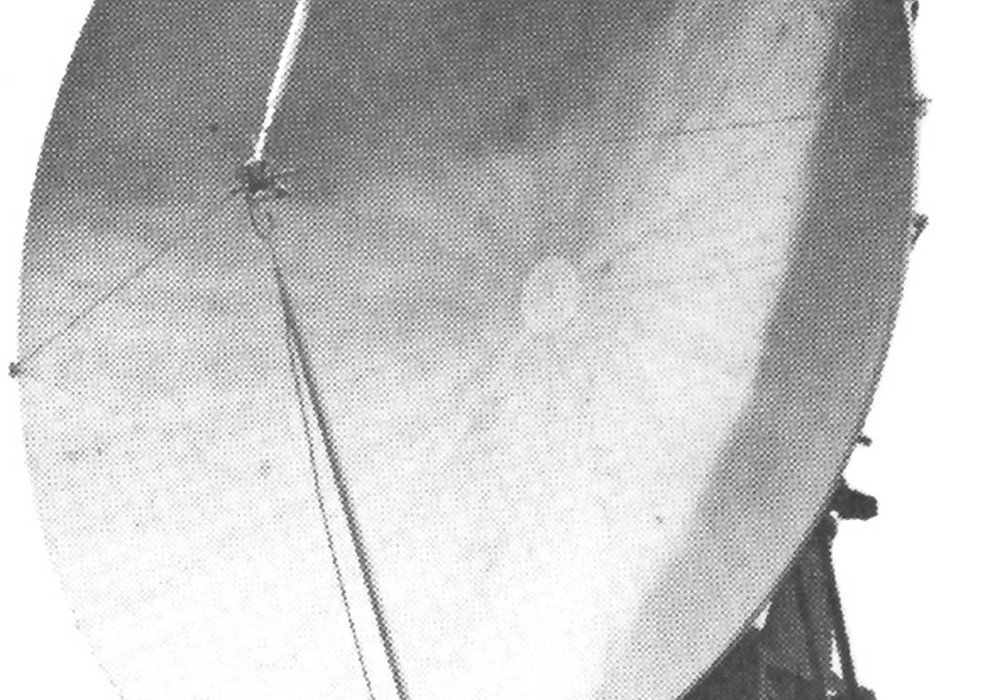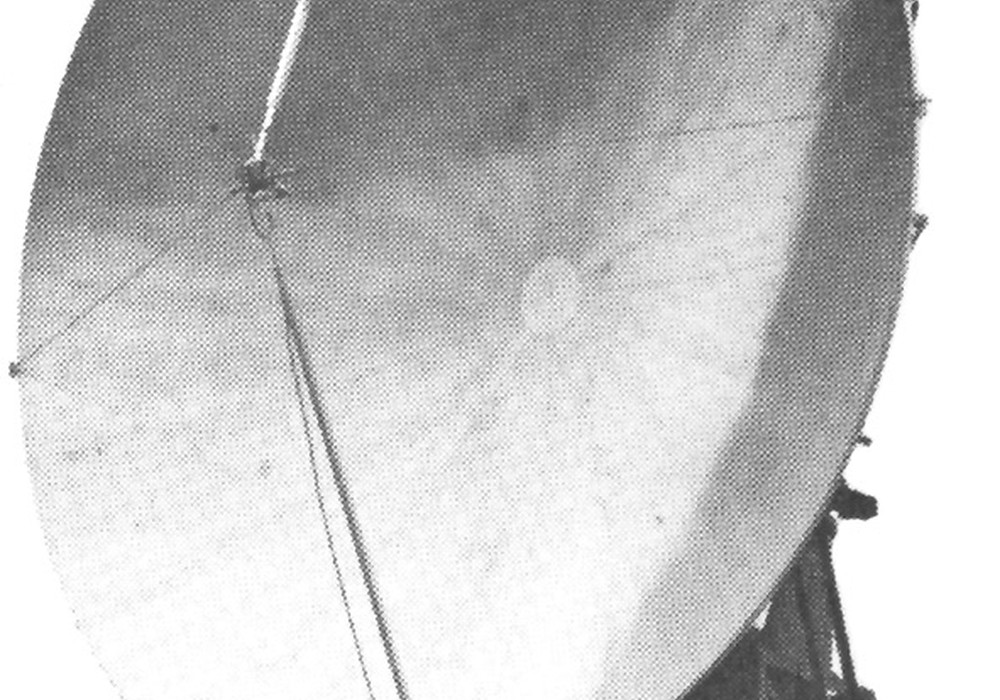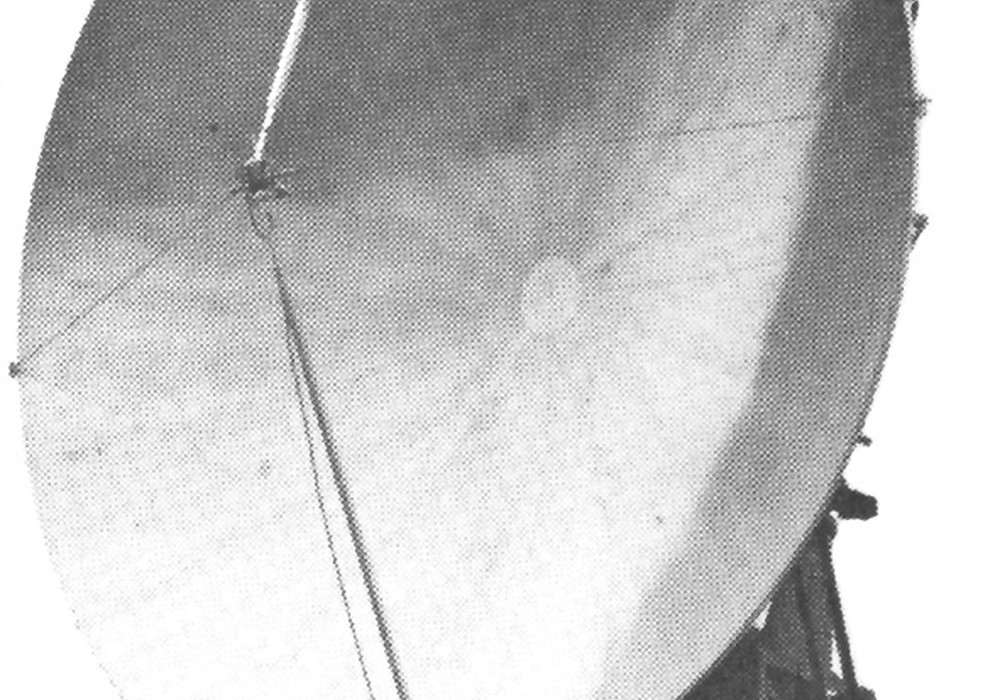Through close encounters with Motown machinery, Ken Caillat [Tape Op #96], and Hal Blaine's drum kit, Foxygen's Jonathan Rado has established himself as a modern manipulator of the Nixon-era studio palette. His Richard Swift [#120]-assisted effort, We Are the 21st Century Ambassadors of Peace and Magic, Foxygen's second album, followed through on its promise of mid-century sonic diplomacy, and 2015's self-produced ...And Star Power outed him as a devoted pupil in the Todd Rundgren school of studio wizardry. Rado discusses the development of the Foxygen model and its modern-day applications, plus recording the music of Tim Heidecker, Whitney, and The Lemon Twigs.
You started making records at home in high school. What kind of equipment did you get started on?
I started on a boombox – I had two boomboxes that would record audio to cassette. I would record on one, then play it back and overdub at the same time onto another one. So it was a weird, early bouncing thing.
That must've sounded ugly quick.
Yeah. I had a band with this kid, Jeff, called Sharp Razor. We did a lot of recording onto this early PC program, Funny Movie Maker, that was meant for animating. You could essentially record your voice into the program; it would roughly approximate you speaking with these animated characters. We recorded audio into that program because it was the only thing that would take audio.
When did you start Foxygen?
We started the band in ninth grade. We had made these recordings that were just the band jamming. It sounded like The Doors. Sam [France] took them home and put overdubs on it. It blew me away. I had never overdubbed, beyond two or three tracks. And that was the idea behind Foxygen – that it would just be the two of us, and that we would do everything. The early recordings were made on my PC, in a program called Acid [Sonic Foundry, later Sony]. I think it was meant for looping. I bought it for $30 from an electronics store. I think I bought it because it came with a little gooseneck computer microphone. Kill Art (2009) was made on GarageBand, before either one of us had a laptop. Sam would drag his family's Mac over to my house to record, and then he would drag it back.
Was the computer really easier to move than the instruments? How much equipment did you have?
I had an early eBay addiction. In high school I would buy xylophones, melodicas, and anything cheap that could make noise. I also had a drum set, an organ, and a piano. My bedroom was pretty far from my parents' bedroom, the way our house was arranged, so we could make a lot of noise and it wouldn't bug them.
How many records did you make in high school that wound up at bona fide LP length?
I'd say we made six or seven legitimate, long albums in high school. One of them was really long, like two hours. That was called the Jurrassic Exxplosion Philippic, and was also recorded straight into Acid. We made six or seven albums; then Sam went to college in Olympia, Washington, and I went to college at the School of Visual Arts in New York for screenwriting. I didn't like it very much, but it was a good excuse to live in New York and try to make albums. Sam dropped out of Evergreen [State College] after a year and we moved to Queens. We intended to make albums and play shows. We ended up making just the one album, and we played one show in the basement of the Gibson showroom at a CMJ event. There was nobody there.
Did you graduate college?
No. I went for three years and almost graduated. But we got a record deal, and that was a better position than wherever I would've ended up with a degree in screenwriting. Realistically, I just wanted to be a [record] producer anyway. I had no real interest in graduating from film school.
You got the record deal for Take the Kids Off Broadway. How did you make that record?
In my freshman year of college I was having a weird, early-20s crisis and was making shit that sounded like The Magnetic Fields [Tape Op #38]. My dorm was the size of a closet, and I was going completely nuts in there. I went out to Jackson Heights and bought a 4-track, a little drum machine, and some tiny Casio keyboards. So [in Queens] Sam and I had all that shit, a USB mixer, and GarageBand. We discovered that if you plug the output of a mixer into the input of the same mixer, you can make a synthesizer by turning the volume up on that channel. It can self-oscillate. It's all over the record.
I was going to say that Take the Kids Off Broadway is the Foxygen album with the least nostalgic production aesthetic.
If we had had the means to record on a 24-track tape machine, we would have. In the beginning, we got seduced by the ease of the computer, but we were always using tape in some capacity. We'd take what we had on cassette and send it through a 1/4-inch [jack] into the back of the computer. Really, really janky. I used to work at Gibson Guitars in New York. The Hit Factory had been turned into condominiums in 2005, but they left the bottom floor intact. Gibson bought it and turned it into their showroom, which I had a key to. The gear was stripped out, but all the live rooms were left intact. I went in there and recorded all the drums for Take the Kids Off Broadway into GarageBand, with a USB mixer and one [Shure] SM57. So we recorded the drums where they recorded [Bruce Springsteen's] Born in the U.S.A. A multi-million dollar studio… straight into GarageBand.
What did you play into the 4-track, and what did you put right into the computer?
Most of it was done right into the computer. I ran some whole mixes through tape at the end. I listen to that record now and it sounds like GarageBand; like a lot of GarageBand reverb.
And what was your job at Gibson?
I delivered guitars around town. Their job at that building was to place Gibson guitars in the hands of people playing on [late night television]. The building was in Hell's Kitchen, so I would run up to [Late Night With David] Letterman and bring a guitar, or go to The Colbert Report.
You probably met some interesting people.
I didn't really do any hanging out. One time I delivered a guitar to a Lady Gaga rehearsal, and I saw them rehearsing.
Did you at least get a free guitar?
I got a reverse flying V that nobody wanted. Sam has played it live, and it's on some records.
We Are the 21st Century Ambassadors of Peace and Magic sounds a lot better than Take the Kids Off Broadway. Did you engineer it?
We recorded that with Richard Swift at his home studio. He was a big inspiration for us on Take the Kids Off Broadway. He's a genius – one of only a few people I've worked with closely. I've remained blown away by everything he's been doing. I'd learned a lot from his records before I even met him. The first time I heard a Richard Swift album, I couldn't believe that I'd never heard it before and that it existed in the world. I just drove around all night and listened to it. The last track on [Take the Kids Off Broadway] is called "Middle School Dance (Song for Richard Swift)". He was playing [in New York City] with a band called the Mynah Birds. We had finished the album earlier that day. We knew Swift was coming to town, and we knew this would be our only chance to give him this album because he never really toured. We gave him that CD, and that's sort of how we got a record deal. He really liked it.
What label did he sign you to?
Secretly Canadian/Jagjaguwar. They're owned by the same people.
Did you pay Richard Swift to record ...21st Century Ambassadors?
The label paid him. They gave us $5,000 to make the record, without signing us. We made it in nine days – a song a day. It was crazy.
Were you nervous to work with him?
Absolutely. But then we went up, and I was like, "Oh, he's kind of doing things the same way that me and Sam do things."
Did you pick up any techniques or equipment preferences from him?
We recorded that album on Pro Tools. I'd never used Pro Tools before. I wanted to record on tape, but he said, "Honestly, we have nine days and it's going to be a longer process to record on tape." He was super confident that he could get it to sound as good on Pro Tools, and I'm pretty sure he did. Nobody thinks that that album's recorded in Pro Tools. He has a similar approach [to Foxygen], in that he mic'd all the drums with one mic. At that point, he didn't have expensive gear. He had Tascam gear, and I was like, "I have Tascam." I guess what I took most from that experience was that it's not really about the gear. It's more about how the music sounds in the room. I remember going in and thinking, "Wow, his drum set sounds incredible." It's just tuned really well, and it sounds great in the room.
I feel like that's the record where people start to describe you guys as '60s or '70s revivalist types. Do you find that characterization accurate?
Not really. We didn't want to portray ourselves as little hippie kids. That was never our intention, in any way. It was just like, "We like '60s music, so why not make an album that sounds like that?"
I think the title didn't do you guys any favors.
Right. We sort of knew what we were doing. We knew we were making an album that maybe could've come out in the '60s. We didn't know it was going to define our career.
Do you feel like it has?
I feel like, in some way, people will always think of us as '60s revivalists. But at this point in my life, I don't like listening to psychedelic music. Things that are "psychedelic" really turn me off.
I watched a video from 2013 where you're being interviewed in the record store I grew up buying records at – In Your Ear, in Boston. You're holding a copy of [Fleetwood Mac's] Tusk, and you mention that Ken Caillat is going to work on your next record. Did that happen?
No, but we met him. He did a book signing for Making Rumors [:The Inside Story of the Classic Fleetwood Mac Album]; we gave him a copy of Take the Kids Off Broadway and got his email. We had this idea, "Oh, we're going to make Tusk with Ken Caillat." It seemed like not a great idea after a while.
Yeah, I guess it's funny that Tusk has become this totem in indie rock circles, considering that it was literally the most expensive-to-produce record, of all time. Did you even end up reaching out to Ken?
No, I don't think we ever got in touch. We did the second record – …And Star Power – by ourselves. We recorded a lot of the basic tracks in my garage, in Los Angeles. I bought a cheap house in the Valley and converted the garage into a soundproof room. I put in a layer of drywall that doesn't touch the other wall – technically what you're supposed to do when you soundproof a room – but it was done very cheaply. I did it with my girlfriend's dad. The neighbors still complain. It was unsuccessful soundproofing.
Did you get money from your label to build out the studio?
We had a record advance. I bought a [Urei] 1178. By that point, I already had a Tascam 16-track, 1/2-inch deck – the Tascam MSR-16 – and a Tascam board that came with it. A lot of that album was recorded with this dictation microphone – just a crappy microphone that would've come with a journalist's recording kit.
Why would you record music with that?
I liked the sound of that mic – it sounded really thin. I think that album, as a recording engineer, was a huge learning experience for me. I didn't really know what I was doing at the time, which often led to interesting results.
For example?
I was really into Todd Rundgren, and I read that he loved using his [Universal Audio] 1176 with all the buttons in – you know, pushing all of the ratios on a compressor in at the same time. I was recording with this crappy mic, into a [Roland] Space Echo preamp, into this compressor with all the buttons in. It just sounded super thin and fucked. I did that for every instrument. Then we got to the mixing process and realized that everything was insanely recorded. But the album, I think, benefited from that. That record is such a nice little capsule of me learning how to record something. By the end of it, I had figured out that you don't need to go four buttons in on the 1176 for everything. I started realizing things about gain structure.
I read that you recorded tracks for that album at some hotels.
We did a lot of the basic tracks in my garage, but there're no windows in my garage and we were in there for like four months. We just had to get out. So we spent the remainder of our record advance on expensive hotel rooms in L.A. and dragged around my little Tascam 488 [Portastudio].
Why?
To do the vocals.
No, why a hotel room?
I don't know, it just seemed like this very L.A., glamorous thing to do. The whole record was about excess. Everything about that record is excessive. And it's all about L.A., and it sort of has this "cocaine" quality to it that's very extravagant. At the time, it seemed like a really good idea to record all the vocals in different expensive hotel rooms. We did it at the Chateau Marmont and the Beverly Hills Hotel.
You organized the songs into a double-LP with named sides, which is an old-school model. I'm curious what the impulse behind that was.
Foxygen's always been a very conceptual band, and so every record was a concept. Like 21st Century was, "What if this was a '60s record?" ...And Star Power was, "What if it's 1972 and these guys have a slightly bigger record advance? Then they get in too deep and try to make some insane record that they actually can't fully achieve." We were trying to make it sound like [Todd Rundgren's] Something/Anything?and A Wizard, A True Star. The first side is all the singles. The second side is a big suite. The third side's complete hell. The end is just two more songs. It was overly conceptual.
After ...And Star Power, you started producing other people's records, including Tim Heidecker's In Glendale. How did you two get hooked up?
That was through Secretly [Canadian]. He'd reached out to them about wanting to make a proper record. For some reason, they thought of me to do it. I didn't actually end up recording the album, but we demo'd a lot at my place. One of the demos is out there – "Work from Home." I hope someday he puts them out, because they have a really special quality to them. I didn't end up recording that record, but I released it on my Secretly Canadian imprint. It's the only release on Rado Records. Now [Tim's] doing a Trump album [Too Dumb For Suicide: Tim Heidecker's Trump Songs]. I did a few songs on that too.
Where'd you make the Whitney record [Light Upon the Lake]?
In my garage. Right after ...Star Power I figured out how to record music. A lot of things clicked for me.
Did it require buying more equipment?
The Whitney album is interesting because I kind of went overboard. I heard the Whitney demos and I thought, "This band is so good, I want to do this album on 2-inch, 16-track. I want to do it like The Band." My friend was selling this Ampex [MM 1200] that was in the Motown studios. It was used to record the Jackson 5.
How did your friend get it?
It's an insane story. He got it through some billionaire's kid who wanted to open a recording studio and bought all this historic gear. Then the kid decided to join a cult or something, and sold all his gear for nothing because he didn't need the money. My friend bought it and then I bought it, but it got fucked up during the moving process. A bunch of the cards were cracked and it was massive. So I got it for this Whitney record; it took up half the room, but it didn't work. I recorded the Whitney record to my Tascam, the same 16-track I'd always been using. But it was right next to this massive, historic Motown machine. I ended up selling it back – I didn't want to deal with it.
I read an interview with Whitney's Julien Ehrlich where he said that his vocals had been intentionally mixed to sound like a girl's vocals. What is a gendered vocal effect?
Varispeed [pitch control]. I think we might've recorded some things slower than they were supposed to be so it could be varisped up. [Julian] did all his vocals into a Sennheiser [MD 421]. The first day we were doing vocals I put up a mic stand, and he said, "Oh, I don't use mic stands." He just sat on the piano bench with a pop filter attached to the bottom of the mic.
So I guess you finally bought some mics before you made that record?
Yeah. I still had a 57 on the kick [drum]. I had this overhead… What the hell did I use as an overhead? I don't have any kind of system, so I don't always remember what I used, song to song. I don't like it when I listen to an album and it sounds like they set up the band and the band just played. I like the recording studio as a tool, as an instrument. I like to change the drum mic'ing for every song.
Before Whitney, you recorded The Lemon Twigs' Do Hollywood. They were going to high school in Long Island at the time. How did that session even come to be?
They emailed me a year before we made that record. They were like, "Rado, check out our music."
You actually listen to unsolicited demos?
I feel like I have to listen to projects people send me, because I gave my demo to Swift and Swift listened to it. I feel like I owe my career to someone randomly listening to a record of mine. I heard their first record and it sounded like Tame Impala, but they both had amazing voices and they were so good at their instruments. I met them in New York; we talked and I asked, "What do you guys like?" They like the Beach Boys and The Beatles, so I said, "You should make music that's more influenced by the music that you like." Over the next year, they wrote all those songs and sent them to me. We found two weeks during their school's winter break, and we recorded it in my garage with the Tascam board and Tascam machine. I had this Allen & Heath mixer, with a 4-channel USB [interface]. I'd do four mics into the Allen & Heath [ZED-10], get a mix, and then print it to one track of the tape machine.
Did they pay you?
Eventually. I just really wanted to do it. I thought, "When someone decides to put this out, I'll deal with that." They're some of my best friends, still. I talk to them pretty much every day.
You ended up bringing them in to do the last Foxygen record, Hang. You didn't make Hang in the garage, did you?
We did it in Vox Recording Studio, in L.A. I haven't recorded anything in my garage in a while. Whitney didn't have a big budget for their record, and The Lemon Twigs didn't have any budget, so it's good for really low-budget projects, but it's limiting.
Michael D'Addario from The Lemon Twigs played Hal Blaine's drums on the new record. Was that just hero worship, or was there a practical reason for it?
It was impractical. I feel like everything that I've ever done is impractical. I live for impracticality and trying to do things 110%. There were six drum sets, but they said, "Those are Hal Blaine's drums." It's a 7-tom kit and I said, "That's the sound of the record, right there. Let's do that." I don't think Michael had ever played a kit that big before. He's just such a good drummer. My favorite drummers are Hal Blaine, Richard Swift, Michael D'Addario, and Steven Drozd [The Flaming Lips].
Steven Drozd is on Hang too, right?
There's a song, "Mrs. Adams," and a song, "Trauma," that both have two drummers – Steven Drozd and Michael D'Addario – facing each other, on different kits, just locked in. It was like having this legend on your record, and also the future of music.
The strings on that record sound really good. How involved were you in that side of the recording?
I was there at every step of the process for that record. Trey Pollard and Matt White, who work for Spacebomb Studios, did all the arrangements and we recorded at a place out there called Montrose [Recording]. Sam and I wrote out a bible of what we wanted. Verbal breakdowns, like, "Twenty seconds to one minute: this part is supposed to sound like an old Hollywood film." It was lots of vague direction like that. "George Gershwin." "Ragtime." There were no changes to what they did. Maybe one or two. Now I have Trey on tour. He wrote out all the horn arrangements for the live show as well.
What projects do you have on deck?
I'm co-producing a record with Shawn Everett [Tape Op #115] for the band Houndmouth. It's on Warner Bros, so it's a bit of a bigger budget than I'm used to working with. We're working out of studios and doing these large-scale experiments.
Like what?
We made a 24-track tape loop. We had a drummer play for a minute, found a good bar, cut the tape, and looped it. As the tape was looping, I went out in the live room and played percussion onto different tracks of the looping tape, which was being held up by four people holding a mic stand for tension. The tape would flutter on the tape head so everything I recorded had a natural vibrato. It's literally the best drum sound I've ever heard.
What about plans for Foxygen?
I think we're going to do a new Foxygen record in January [2018]. We've got six or seven songs written. I'm going to work with Shawn as an engineer. We're going to do drums at Electric Lady Studios, and I'm renting out this studio in L.A. called Sonora Recorders. I'm locking it up indefinitely.
